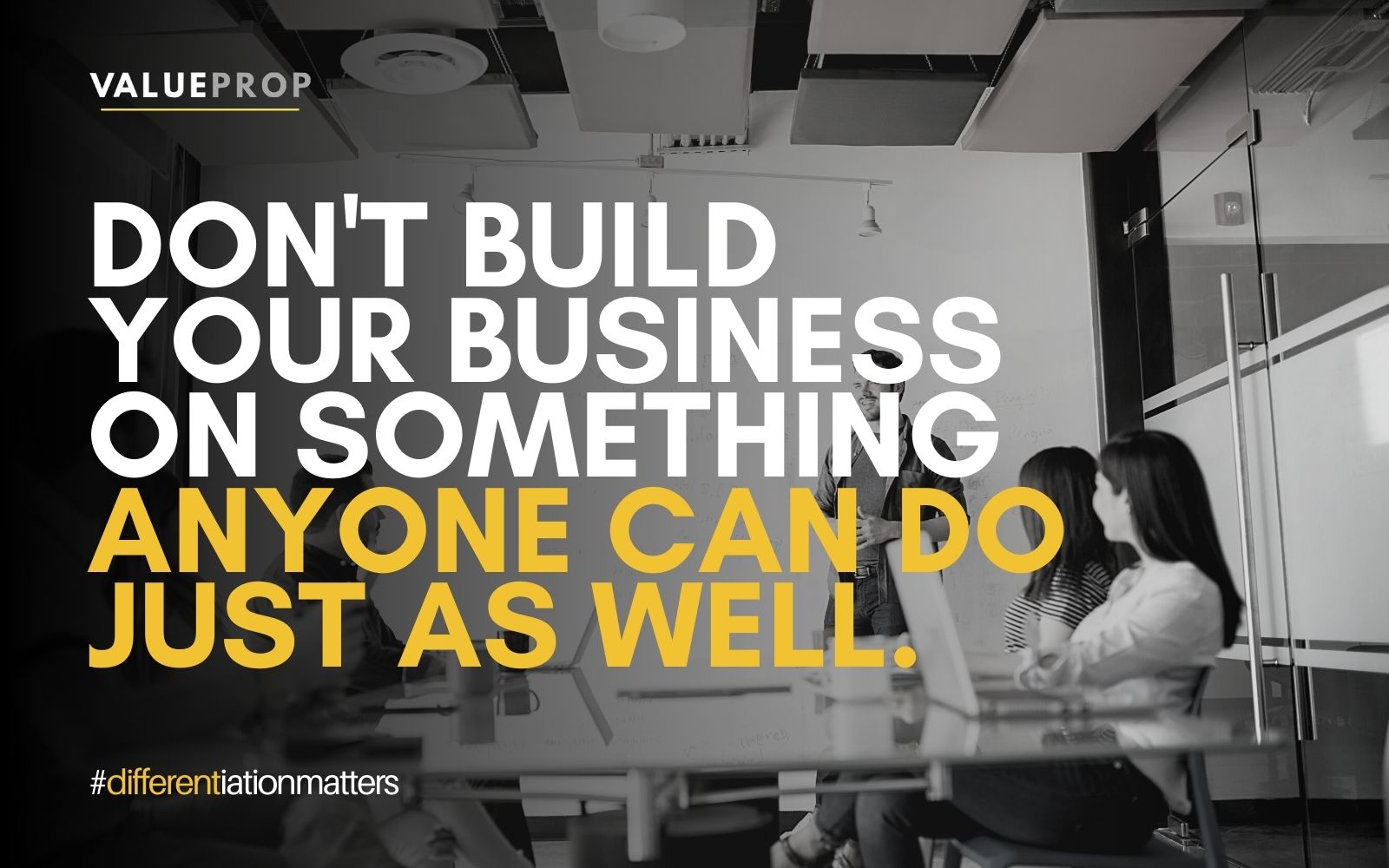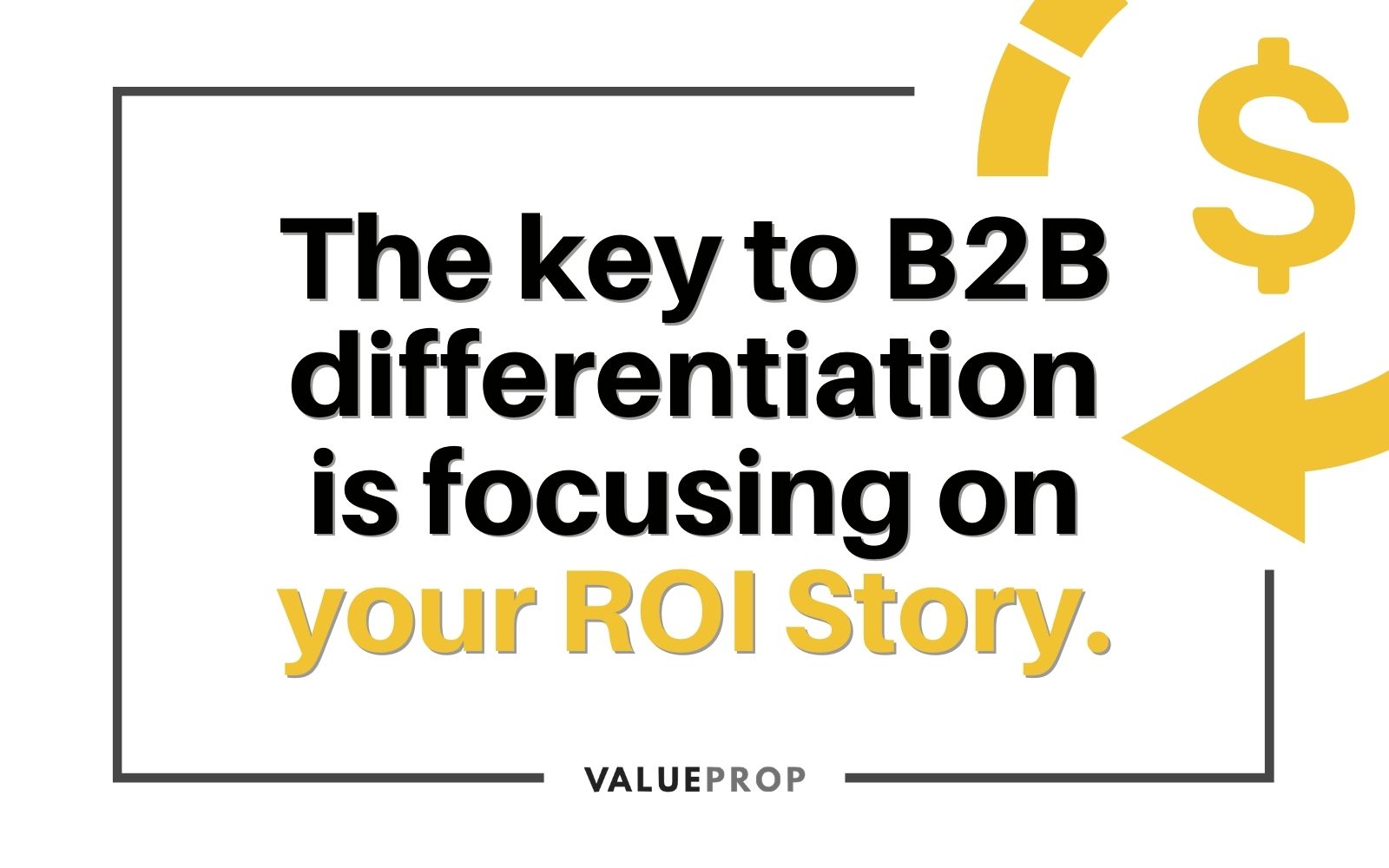Differentiation Makes All the Difference in Your Business
May 28, 2021
Aside from being the most aptly named athlete ever, Usain Bolt is enshrined in Olympic history as the world’s fastest man (seriously, how is that last name just a coincidence?) His unthinkable 9.58 second 100-meter time is etched in the memory of millions who watched. But you know who just about no one remembers?
The man who came in second place.
American sprinter Tyson Gay lost to Usain Bolt by literally, just a fraction of a second--0.13 seconds. But unfortunately for Tyson Gay, Usain Bolt got 100% of the gold medal. The Marketplace works the same way – except when you are competing for business, the second-place company doesn’t even get a silver medal. They get nothing, 0% of the revenue.
This is why differentiation is so critically important for winning business and growing your company. You may only be “0.13 of a second” behind your competitors, but to the winner go the spoils. If you can set yourself apart in your space, the upside is… significant. Let’s get into it.
Don’t Settle for the Equally Credible Claim
If I were to ask you right now what sets you apart from your competition, what would you say? Is it a specific feature of your product or service that you offer? Is it your support? Is it your billing? What is it that you do or offer that your competitors don’t?
You might have an answer to this question, and you might even be fairly comfortable with it. But can I let you in on a business coach’s secret? I’ve talked with too many business owners that think they’ve got their differentiation dialed in, but they’ve overlooked an important piece of the puzzle.
The things they claim “set them apart” often aren’t all that special. (More often than not, it’s just that: a claim.)
If you’re counting on generic claims to set your business apart in crowded markets, I have an uncomfortable reality check for you. If your competitor can claim it too, you’re not actually standing out. This is true even if you know that you're better. The point is that in your space - your competitors are given the same "benefit of the doubt" that you enjoy. After all, why would a customer doubt that their machine or software is inherently inferior to yours? You're both in the same space, and the assumption is likely that you can both basically do what you claim.
As I like to tell our Revenue Throughput clients: “Don’t settle for the equally credible claim”. If everyone else is claiming it, you either need to prove it more than they can or claim something else.

Differentiation Starts with the Truth, Not the Headline
If you want to really set your business apart, it doesn’t start with what you can claim. It starts with the truth about who you are and what you do. You need to be differentiated in your offer, not just in your marketing. What do I mean by that?
Take Value Prop for example - the business coaching and consulting world is a crowded space, and nearly every contender promises to grow your business. But if you’ve had a disappointing experience with a coach or consultant before, you know talk can be cheap...or actually rather expensive for you, the buyer.
We knew that our differentiation had to be in something more than simply promising results. We may feel we have a unique reason to be confident about our results, but if everyone’s claiming it as well, then we’re just playing in a marketing shouting match…which is just expensive, exhausting, and inefficient.

That’s why as a coaching and consulting firm, we focus on what truly sets us apart--our proprietary Revenue Throughput System. We know that no one else can claim it because it’s our uniquely effective approach to growth. It’s simple in concept (easy to understand) and powerful in output (easy to remember).
So when it comes to your business, start with the truth. Start with the substance. What do you actually have, do, or offer that is genuinely unique? Especially if your offer is directly related to ROI goals, how does your product or service improve outcomes or the process that achieves them?
Committing to Your Competitive Edge
Here’s another surprising thing I’ve come across in my business coaching - quite a few businesses already have a real, viable point of differentiation. A genuine competitive edge. The problem?
Owners can get so tied up in the weeds of day-to-day operations that they don’t realize the valuable asset they have in their corner.
If you want to unlock big-picture revenue growth, here’s the top four things I recommend you do when it comes to differentiation:

1. Find Out What Matters to Your Ideal Customer
Here’s the thing. Yes, you are probably already doing something that’s unique, something that none of your competitors are doing. And you may be thinking, “Ahha! Yes, I know what that thing is--it’s that we make our machine with pink polka dots, and no one else does!” A ridiculous example, but stay with me.
Whatever you use to differentiate yourself has to matter to your ideal customer. Does your customer actually care that you have pink polka dots? If they don’t, it’s not worth anything--even if you’re the only one doing it.
2. Create Space Between You and Your Competition
In this step, you’re looking for any “daylight” between you and your competition. That means you’re looking not just in the obvious places (like your product or services features) but in the not-so-obvious places.
It could be that your turn-around time is incredibly fast and efficient because of the procurement software you use. It could be that your delivery methods are so predictable you can make a better guarantee than your competitors. It could be that your production process is so accurate you create less waste than anyone else.

See what I’m getting at? It isn’t about having a never-before-seen feature or product. It’s just about being 0.13 seconds better than your competitors in a way that matters to your customers (p.s. you might even find that by emphasizing one of those “I didn’t think anyone would care about that” assets you start attracting entirely different customers!)
3. Communicate Your Differentiation Clearly & Compellingly
Here’s a fact that often blows minds: you need a unique value proposition for every single offer you have. That’s right--it’s not enough to have one meta-value prop for your product or services. You need one for everything that you do--which means you might be coming up with a lot more value props in the near future. So here’s a quick refresher on how to communicate them clearly and compellingly.
Above all, your value prop needs to be concise, simple, and impactful. Even if you provide complex offerings, a long-winded value proposition can drag you down in sales meetings and marketing campaigns--and your valuable differentiation will get lost in the hustle and bustle. Here are a few key principles:
- Your value prop needs to target the decision maker for your product or service.
- Your value prop should focus on a critical pain point or a specific, attainable upside.
- Your value prop HAS TO matter to your customer, not just to you.

One template I love to use is this: We offer WHAT to WHOM who want WHAT BENEFIT through WHICH FEATURE. To illustrate, I’ll build a value prop for a lawn services company (since it’s that time of year).
We offer 100% organic lawn care to environmentally-responsible homeowners who want lush grass without pesticides through our pet, child, and earth-friendly products.
4. Now Commit and Amplify Your Differentiation
Now you know what you do best and you know how to communicate it--but don’t forget the ever-important step of shouting that message from the rooftops. Don’t hide it deep within the features on the service page of your website. Lead with it front and center.
That means putting it in all of your marketing materials--ads, brochures, video demos, social posts. It means training all of your staff (not just the sales people) on what makes you unique. It needs to be so ever-present that your customer remembers your differentiator more than even your company name. “Oh, aren’t you guys the [differentiating feature] people?” should be music to your ears.
Your customers and prospects will only remember a limited amount about your product or brand, so commit to the aspect of your business that is most remarkable to your ideal customer.
Making a Game Plan to Differentiate
I know we covered a lot ground here because each of these points are remarkably big-picture. They’re directional decisions.
If you only take one thing away from this discussion, I would package it like this: If you can develop a meaningful, differentiated value proposition (one for each of your offerings), you can unlock powerful business growth.
So find your edge, develop it, communicate it, and commit to it!


